(Psst: The FTC wants me to remind you that this website contains affiliate links. That means if you make a purchase from a link you click on, I might receive a small commission. This does not increase the price you’ll pay for that item nor does it decrease the awesomeness of the item. ~ Daisy)
By the author of The Ultimate Guide to Frugal Living and the online course Build a Better Pantry on a Budget
Spending time living in Europe was one of the highlights of my life. I lived first in Greece. It’s a beautiful country bursting with abundant fruit and flowers. It’s got history like I’ve never seen in my entire life. I remember just walking down a road in Athens, noticing a tent, and peeking over the edge to see that they’d unearthed another small settlement from centuries and centuries ago when they were excavating for another subway line. I learned a lot about the local culture by living there, things you cannot learn by just visiting for a few days on vacation.
Greece, as recently as ten years ago, was suffering in the midst of a horrible economic collapse. The country’s debts were called in, and no further credit could be extended. The banks went on “holiday,” which meant ordinary people like you and me were tightly limited regarding how much cash they could withdraw. Things were terrible. Many Greeks lost absolutely everything.
The country is slowly returning to life, but the scars of that economic disaster remain. Every adult remembers how difficult things were a decade ago, and because of it, they’re extremely cautious with the money they have now.
I got to know some local folks when I was there, and I noticed several habits they had that aren’t necessarily common in North America. Some of these can help us save money, too. Some of these things were mentioned in an article I wrote about Europe but I’m going Greek-specific here.
Don’t keep your water heater on at all times.
One of the things I had to get used to was thinking ahead when I wanted to have a shower so I could turn on my hot water heater. In Greece, people do not leave their hot water heaters on like we do here. That means that handwashing is done with cold water, and dishes are either done around the time that you shower or you need to put water on in the kettle to add to your sink to have hot dishwater. Most places install a switch similar to a light switch to make turning your water heater on and off a breeze.
The tanks there are considerably smaller than ours (around 20-30 gallons), and they take about 30 minutes to heat up fully. In Airbnbs, the owners generally request that you do not leave yours on all the time and that you turn it on only when you need to use hot water.
If you are considering this step, note that it takes a typical 80-gallon electric water heater about 2 hours to heat up fully. You could potentially turn it off during the day, then back on when you return home from work, so it’s ready for bath time and dishes.
Eat a simple, inexpensive breakfast.
We Frugalites have talked a lot about the financial benefits of breakfast food. It tends to be the least expensive meal of the day for most of us.
In Greece, one of the most popular breakfasts around is Greek yogurt drizzled with local honey along with a side of fresh fruit. Because the country has such bountiful fruit, it’s available year-round at a low cost. Greek yogurt is rich, full of protein, and immensely satisfying. You can make your own yogurt following the instructions in this article. Simply add an extra period of draining to get the thickness of Greek yogurt.
Bean soup is filling and delicious.
I’ve written about the joy of a bowl of bean soup before. Greek bean soup is called fasolada, and it’s really filling and delicious. (Get the recipe in the aforementioned article.) You can find it simmering in nearly every mother’s kitchen, and many restaurants offer it as a low-cost lunch, served with a hunk of fresh bread.
Dining out with friends is a major tradition in Greece, and even during hard times, you’ll see patio restaurants jam-packed with patrons. You can get a bowl of fasolada and bread, along with a glass of water, for less than a dollar in Athens. Making your own big pot of bean soup to keep in your fridge all week is a great way to have lunch or dinner ready to go on demand.
Add bread to every meal.
Obviously, this isn’t an option if you have a gluten intolerance or celiac disease. But for the rest of us, adding some fresh, homemade bread to our meals isn’t only filling, it feels like a treat. If you aren’t much of a baker, you might find that a bread machine is a good investment. You can set it up in the morning along with your crockpot, and by the time you get home from work, fresh bread can be yours for a fraction of what you’d pay at a bakery.
But you also want to keep in mind ways to use the bread that gets stale. In Greece, a lot of restaurants used “rusks” as the base of dishes like pasta or salad. A rusk is a piece of twice-baked bread, usually made from yesterday’s loaf. They’re so popular you can even get them packaged.
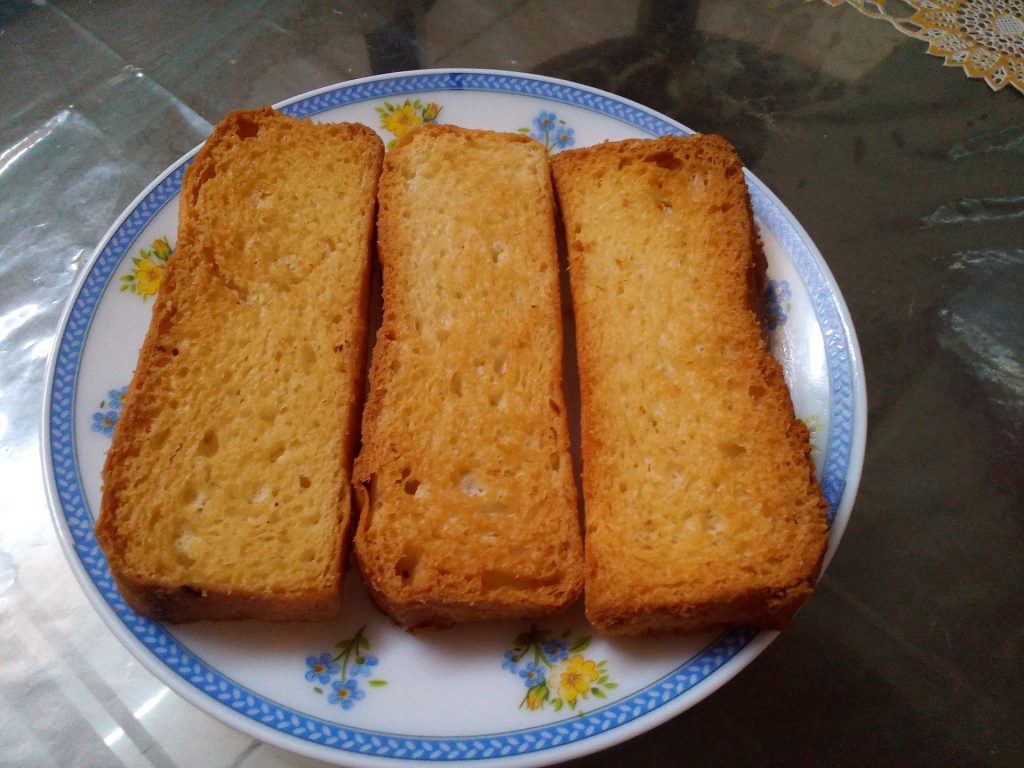
You can also toast the leftover bread or fry it in butter on the stovetop (sort of like making a grilled cheese minus the cheese).
Adding some bread to your meal stretches the main course and many people find the meal more filling and satisfying.
Spending more time outside means you use less power.
I mentioned the patio cafes above, and they really are crowded day and night in Greece. People there spend far more time outdoors. They dine there. They sit outside and have coffee (and a cigarette because I’ve never seen so many people smoking in my life.) Apartments with balconies and patios are in high demand so people can sit outdoors at home too. Of course, it helps that Greece is considered the sunniest place in the world, with 250 beautiful days of sunshine.
This has a two-fold benefit. First of all, if you are outdoors, you are actively using less energy. Less lighting, less climate control, and fewer electronic appliances are in use.
But there’s a secondary benefit too. When you spend a lot of time outside, your body naturally adapts to the seasonal temperatures. In North America, most of us spend a lot of time in the summer rushing from our air-conditioned homes to our air-conditioned cars to our air-conditioned offices and back again. By adapting to the warmer temperatures, your body becomes far more efficient at cooling you off. The same is also true about spending time outdoors when the weather starts to get cooler. This saves money because you don’t crank your air conditioner and heater to the same extent to counteract extremes in weather. Initially, I kept my AC at American levels, and when my Greek friends came over, they were absolutely freezing. Eventually, I adapted and I believe spending more time outside helped.
There aren’t dryers in most homes.
When I lived in Europe, I stayed in Airbnbs. I opted for ones with laundry facilities. Out of 5 different homes, not a single one had a dryer. This trend began at my first stop in Athens.
All the places I lived had washing machines and drying racks but no gas or electric dryers. In North America, I know a lot of apartment buildings and HOAs don’t allow clotheslines, but in Greece, it’s an everyday occurrence to see brightly colored clothing waving cheerfully in the breeze from balconies and windows lining the streets.
By never ever using your dryer, you can save a lot, both on your bill for the appliance but also on your bill for air-conditioning to counteract the heat generated by a dryer. If you don’t have a dryer, then you are never tempted to use it.
Those are just a few differences I noticed.
I love taking wisdom from the places I visit and bringing that information home to apply to my life here. Have you ever lived outside of North America? Did you learn any interesting tips and tricks to help you save money? Do any of these ideas sound like they’d work for you? Let’s discuss it in the comments section.
About Daisy
Daisy Luther is a coffee-swigging, adventure-seeking, globe-trotting blogger. She is the founder and publisher of three websites. 1) The Organic Prepper, which is about current events, preparedness, self-reliance, and the pursuit of liberty; 2) The Frugalite, a website with thrifty tips and solutions to help people get a handle on their personal finances without feeling deprived; and 3) PreppersDailyNews.com, an aggregate site where you can find links to all the most important news for those who wish to be prepared. Her work is widely republished across alternative media and she has appeared in many interviews.
Daisy is the best-selling author of 5 traditionally published books, 12 self-published books, and runs a small digital publishing company with PDF guides, printables, and courses at SelfRelianceand Survival.com You can find her on Facebook, Pinterest, Gab, MeWe, Parler, Instagram, and Twitter.
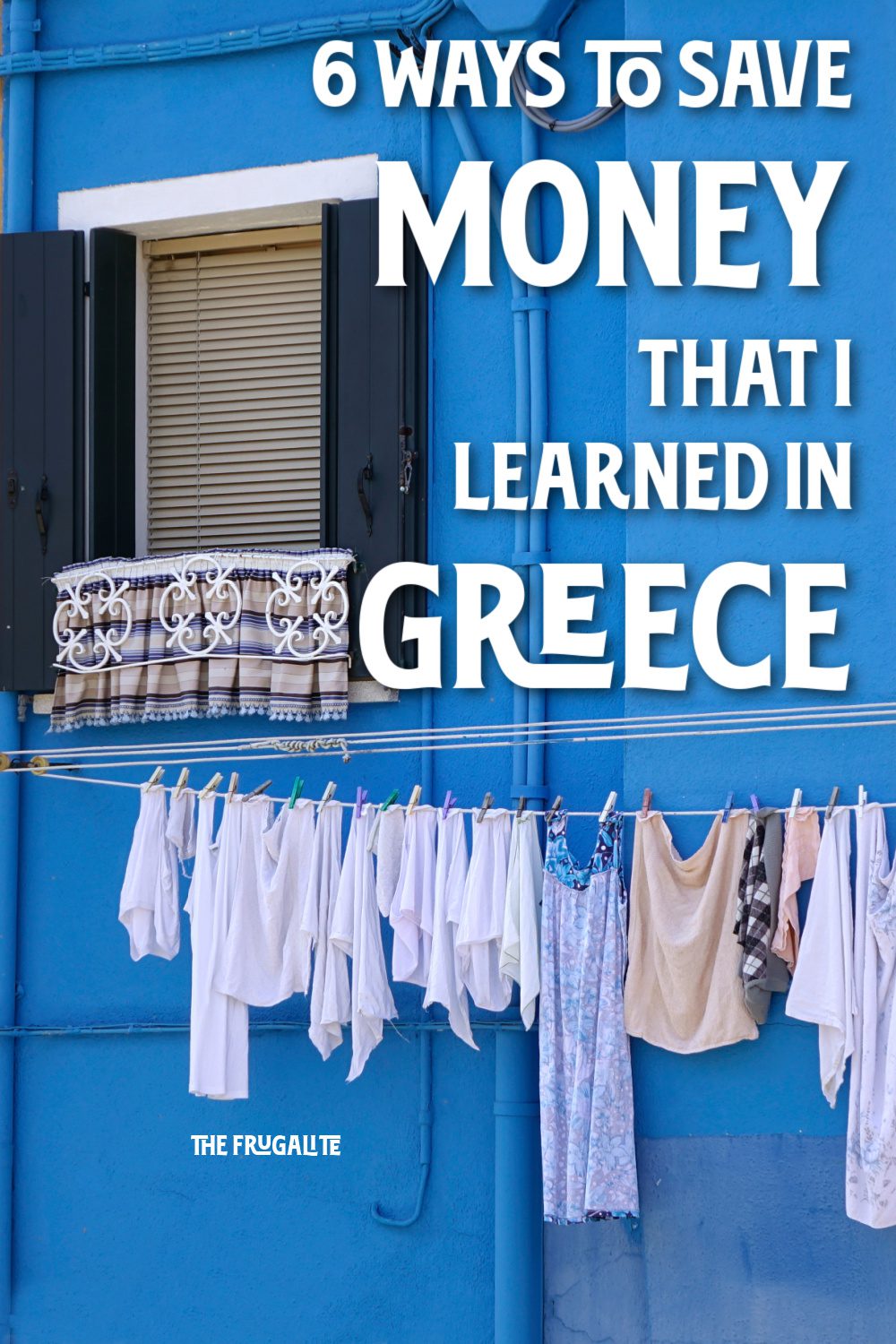

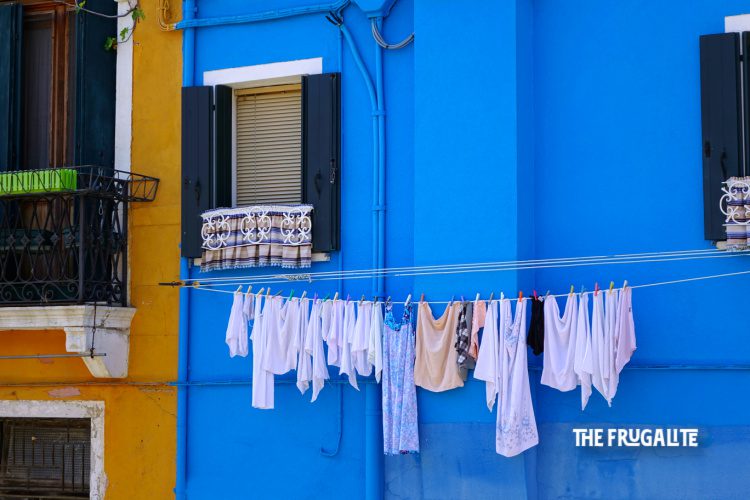






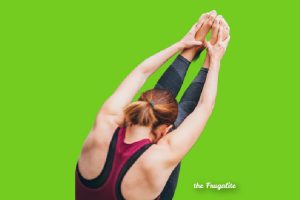
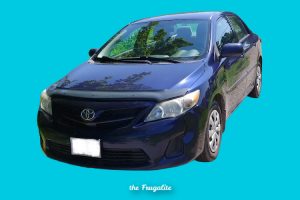

7 thoughts on “6 Ways to Save Money That I Learned in Greece”
Great article – I’m sure the healthy diet will also lower health-related hospital bills over the long-end. Wish I saw some practical electrical/food cost numbers that this would show how much someone could expect to save.
There’s an interesting video on YouTube from a lady who had never seen a washing machine or dryer until she moved to North America. Her video is about how she did her laundry entirely by hand.
In the early days of the 1930s Great Depression, while many families kept their battery-powered radios (which had no monthly subscription), they often canceled their phone to shut down the monthly phone bill.
Also in that era (especially before Rural Electrification came to America) much heating of water for cooking, dishwashing, bathing and laundry was done on wood fueled stove tops. I inherited a couple of the oblong boiling tubs (one galvanized and one made of copper) that are long enough to use heat from two stove-top burners simultaneously.
Another story from those Depression years was that after Prohibition was ended in late 1933 and alcohol (and its many uses) became legal (at least at the federal level) again. So workmen could take small alcohol burners with them to their job sites to heat up coffee and a meal again. Today such alcohol burners and little stoves are marketed to campers, hikers, boaters and preppers. Alcohol in the days (up through 1919) was also used as an alternate fuel for Ford Model-Ts. A driver could switch back and forth between gasoline and alcohol depending on what fuel was available. The reason the Rockefellers donated $4 million dollars to the WCTU (Women’s Christian Temperance Union) was to kick off a morals campaign as a cover story against alcohol to discourage Ford Motors from offering the alcohol alternative in their vehicles — thereby bolstering the gasoline selling gas station monopoly network the Rockefellers owned across the country. It worked … and the alcohol option disappeared from US made vehicles. If gasoline and diesel became too high priced and/or unavailable in our time, an alcohol conversion of vehicles could be one option.
In Germany during WW2 when petroleum-based fuels became scarce because of Allied bombing, many Germans who had access to bio-mass supplies (plants of all kinds, especially trees) converted their vehicles to run on wood-gas. Today it’s an easy lookup online to learn how that can be done.
I’m also seeing stories in the financial press about a new battery technology to replace the mega expensive, hours long to recharge, and dangerous in a fire batteries in today’s EV vehicles. That new battery can recharge in a few minutes, last for 100 years, and be affordably usable by millions more people. It’s just not available yet.
Solar technology is another cost saver for cooking and heating water. Once you get through the learning curve, initial costs, and make your gear choices among the six different types of solar cooker/heaters and the hundreds of design choices, solar is an excellent cost-effective way to help you stretch your stored fuels (such as wood, wood pellets, propane, butane, white gas, kerosene, etc) so you only need to use the stored fuels on the minority of days when the sun is clouded over. That percentage of clouded over days is an easy lookup online by citing the nearest major city to where you live. Some solar cookers even have an electrical heating option that can be automatically switched on when sunlight suddenly becomes unavailable. I know of two brands with that feature — once from America and one from India.
Another non-obvious benefit of solar is to use it for the very brief time you need heat for thermal cooking …once you acquire either a quality thermos bottle or an insulated thermal cookpot.
–Lewis
How we lived with the weather when I was growing up. When I was visiting my relatives on the Navy Base in Cuba when it was a free country, looking back in hindsight, the only air conditioners were used by military personnel, and usually only during the hottest hours. Here in the Gulf states, my folks couldn’t afford new-fangled a/c. The family home had windows on all sides and were kept open when we were home; the front & back screen doors provided more circulation. We adjusted to the season; in Deep Summer, when no wind stirred a breeze, we just sat & did as little as possible until it cooled off. When the men weren’t around, my female relatives stripped down to their slip or wore shorts & thin tops. During the day in Deep Winter, we closed off most of the house and sat near the heater and/or kitchen stove; we only visited the other parts when necessary or to sleep. A plus: my grandmother was talented: she could make quilts out of most-anything, even an old coat & it was toasty.
I lived in Mexico. They don’t use hot water to lavar los trastes. They have a can with a dishcloth, shake soap powder into it with some water. They wash dishes with that and then rinse them. No need to fill the sink.
The first day I was in an apartment in Morelia with three sisters, they asked if I wanted to take a shower after my long bus ride from Mexico City. I said yes, and they gave me a towel. The water was freezing. Afterwards they asked if I liked cold showers. I said no. They asked why I had not turned the boiler on. I had to learn how to light a twisted piece of newspaper and put my hand inside the boiler, turn on the gas, and pull my hand out when it lit. I also had to remember to turn it off after my shower. I nearly caused a Shining like explosion by not remembering several times. I heard pounding and thought it was children playing with a ball. But no, it was pressure building. Also, you can’t throw toilet paper in the toilet or it will stop up and overflow. Every toilet has a trash can next to it for used toilet paper. I hated washing clothes in the lavadero. The deep water in one half is only got scooping up and rinsing, not for immersion. I also hated the dogs on every flat azotea rooftop. Mexicans get them on a whim, put them on the roof, and there they stay for the rest of their lives. Most people never play with them or walk them. They bark loudly and constantly, lonely and bored. Although that’s probably better than being abandoned on the street, to join a dog pack, members of which have short, miserable lives. People often torture them. They often starve or die of distemper, parvo, or rabies. We went to the Papalote Museo del Ninho in Mexico City and learned that Mexico City has more abandoned and feral cats on the street than human inhabitants. Well over twenty million humans, probably at least thirty million by now.
We have an on-demand water heater. No stored hot water at all with it. Not having an automatic 40 gallons of stored water had to be included in my SHTF plans, of course.
Greek yogurt and fruit (or, on occasion, cottage cheese and fruit) are my staple summer breakfast. In the cold of winter I switch to oatmeal made with dry milk and fruit. My husband is coming over to the cottage cheese side, since the eggs he loves went so far up in price.
Soups – I’ve got bone broth going in the pressure cooker right now. In a pinch (and boy have we had some pinches!) I’ve made soups by adding canned beans and veggies to bouillon powder and water.
I usually (and even now I´m single again) wash by hand my underwear while I shower. Every little bit of clothes I don´t have to throw in our old washing machine is a plus. It would a pain washing jeans in the lavadero with a brush, and even worst squeezing them by hand. I hate that.
In order to take advantage of the turn off your hot water heater, It would probably cost me several hundreds of dollars to put the switch in…something I don’t believe I could recoup for many many years.
I would LOVE to eat bean soup again! Unfortunately, I’m diabetic and even the smallest amount of carbs found in beans and lentils (as wells rice, quinoa, etc.), would send me into the 300’s glucose levels. mBread, the same. Now there are substitutes for bread that are low/no carb, but not readily available…
I agree: we Americans spend WAY too much time indoors and out of nature. We need to get back to having our children outdoors when out of school, playing with other neighborhood kids, gardening: ourselves and our children, taking family bike rides or hikes…
Unfortunately, restaurant foods that most people go to are fast foods: full of non nutritional value foods and bad fat, carb, sugar heavy. All of which have made Americans fat and unhealthy.
If you eat non nutritive foods, you need more and more of it to feel full and get the nutrients your body needs. Eating more and more of it, the carb heavy, sugar heavy foods is going to make you fat and unhealthy.
I know there is a place in Greece where the life expectancies very high due to a lot of the mentioned habits…wine is one of them, walking everywhere is another…good ideas and good habits to form now.
Love the remembrances of the comments!